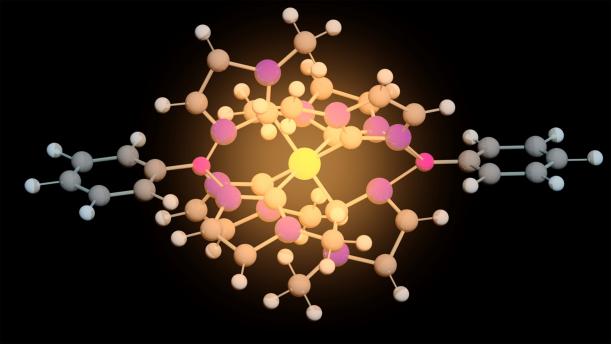A group of researchers from Sweden’s Lund University has developed a new iron-based molecule, which could be used to further reduce the costs of solar technology.
The Swedish scientists claim in their study, published in the scientific review Science, that this new iron molecule may also be used as a photocatalyst to produce solar fuels, such as hydrogen through water splitting, or methanol from carbon dioxide.
For PV technology, the new molecule is said to be capable of capturing and utilising energy from solar light for a long enough time for it to react with other molecules. It also enables the scientists to observe iron-based light with the naked eye, at room temperature for the first time, as a result of a long glowing.
“The good result depends on the fact that we have optimised the molecular structure around the iron atom,” said one of the study’s authors, Petter Persson.
These findings, according to the research team, may be useful in replacing rare and expensive metals, such as ruthenium, osmium and iridium, which are metal complexes used to capture more solar light, with iron. “Iron, with its six per cent prevalence in the Earth’s crust, is significantly easier to source,” they wrote in their paper.
The scientists further said that they have been able to provide these results five years ahead of schedule of the 10-year project.
This content is protected by copyright and may not be reused. If you want to cooperate with us and would like to reuse some of our content, please contact: editors@pv-magazine.com.




By submitting this form you agree to pv magazine using your data for the purposes of publishing your comment.
Your personal data will only be disclosed or otherwise transmitted to third parties for the purposes of spam filtering or if this is necessary for technical maintenance of the website. Any other transfer to third parties will not take place unless this is justified on the basis of applicable data protection regulations or if pv magazine is legally obliged to do so.
You may revoke this consent at any time with effect for the future, in which case your personal data will be deleted immediately. Otherwise, your data will be deleted if pv magazine has processed your request or the purpose of data storage is fulfilled.
Further information on data privacy can be found in our Data Protection Policy.